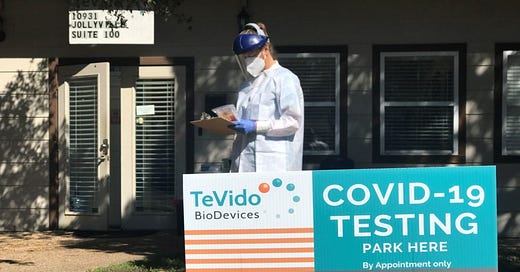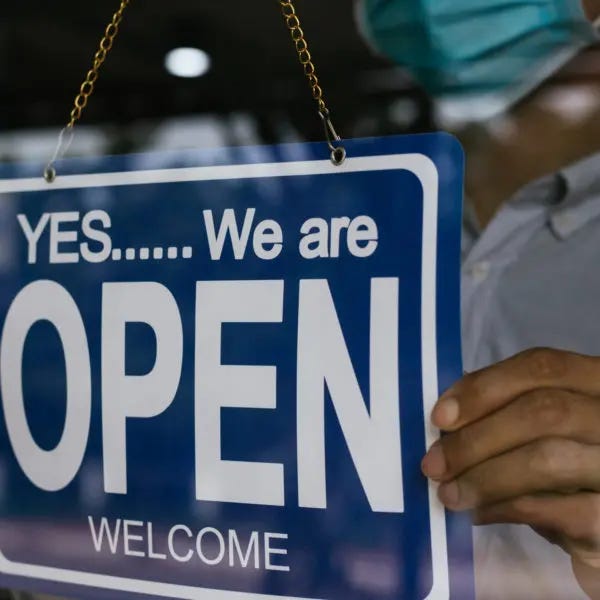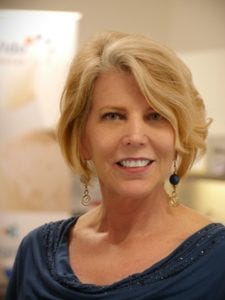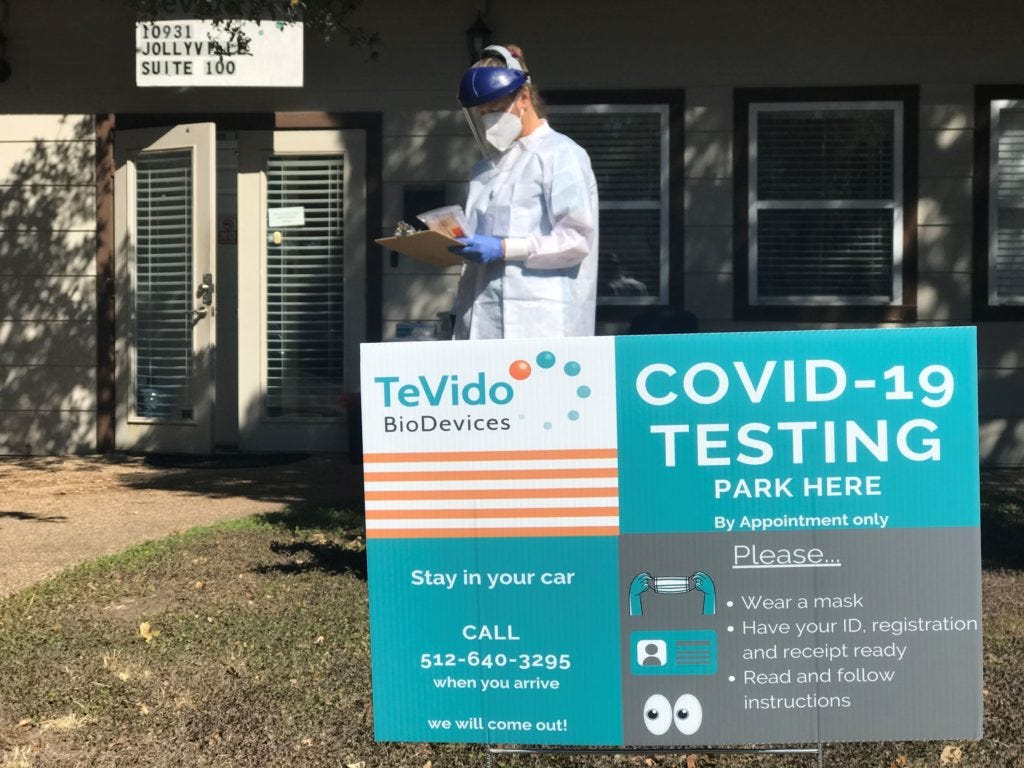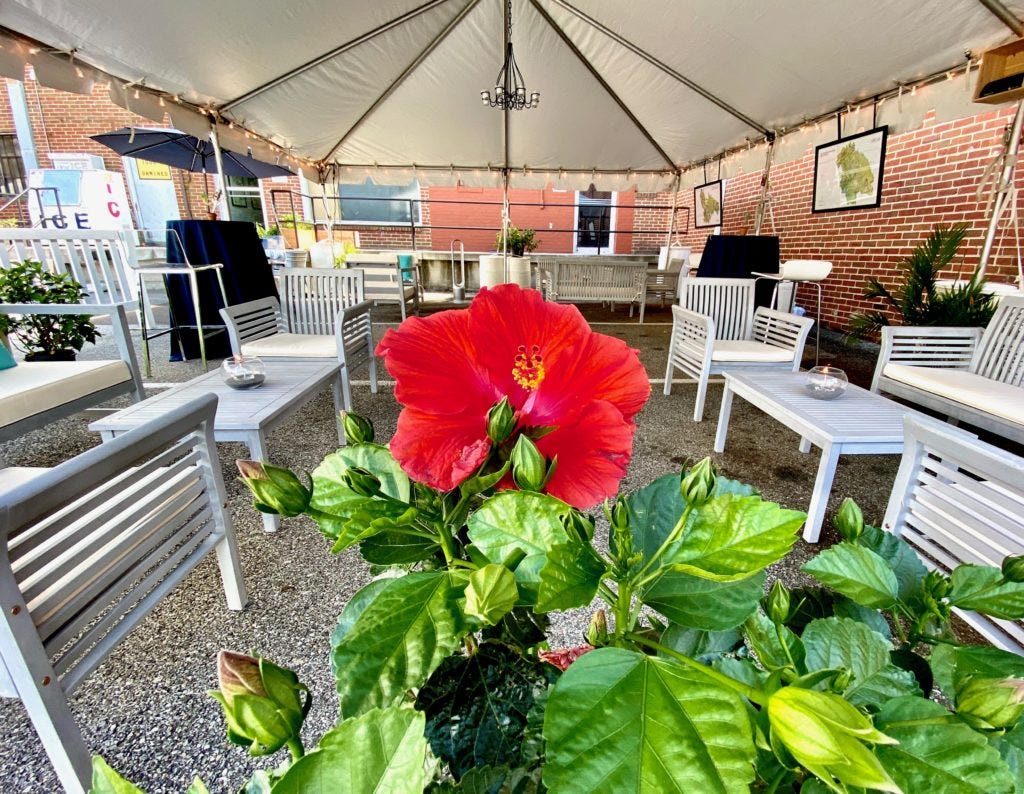Staying in Business Through Reinvention and Resilience
By Robert Graboyes
COVID-19 has tested the strength and creativity of small business as never before—from the most esoteric to the most familiar of enterprises. In Texas, a biotech firm aiming to manufacture transplantable organs for human beings opened for business in 2019—only to see its core business stilled a few months later by the pandemic. In Virginia, a new restaurant opened just weeks before the virus slammed its doors shut.
As different as these two businesses appear, their financial realities and responses paralleled each other closely. Each had to reinvent itself on the fly, navigating an economic hurricane to remain afloat. Both extemporized ways to reach people willing to pay for services they had never intended to provide—all so that, after the virus relented, they could survive to return to their original visions.
Two Businesses, One Pandemic
Laura Bosworth is CEO of TeVido BioDevices, based in Austin, Texas. In 2016, I wrote about TeVido’s aim to become the first company to take a patient’s own cells, grow lots more of them and 3D-print human organs for transplantation. The thicker the organ, the more challenging the process, so TeVido’s aim was to begin with one of the thinnest human organs—the nipple. The idea was to create replacement nipples for breast cancer survivors. Because these nipples would be built from the patient’s own cells, there would be no need for a donor. Nor would these transplants carry the chance of rejection that comes with organs transplanted from another donor. The dream is eventually to use the same technology to produce hearts and lungs and other vital organs.
In early 2019, I wrote about TeVido once again. The task of getting the 3D-printing process working and winning U.S. Food and Drug Administration (FDA) approval was taking longer than hoped, so Laura and her colleagues reconfigured their business model to develop another service—one more quickly practicable and approvable. This new service aimed to manufacture skin for patients with vitiligo—a condition that results in blotches of skin lacking pigmentation. FDA establishment registration came in August 2019, and TeVido began offering its services on Sept. 16, 2019—but ceased in March 2020 as COVID ended elective medical procedures.
Vanessa Moore owns Unwined—a pair of wine and gourmet-item shops in Alexandria, Virginia. A native Louisianian, she began her career in food services by working in restaurants in Baton Rouge and New Orleans. She spent most of 2019 greatly expanding one of her stores to add a Louisiana-themed restaurant called Revel. The new enterprise opened its doors on Jan. 7, 2020, but the pandemic shutdown came less than 10 weeks later, on March 15.
With the pandemic’s arrival, both businesses faced mortal risk. They had bills to pay and employees to hang onto. Nothing was guaranteed. Within weeks, both entrepreneurs transformed their businesses in ways unimaginable just a few months earlier. TeVido became a COVID-19 rapid-testing center. Revel started serving socially distant meals in a parking lot, running an assembly line of carryout food and delivering food and wine over a broad geographic area. Both businesses survived thanks to their ability to adapt swiftly to their communities’ rapidly changing needs as the pandemic progressed.
From Organs to Skin to Lockdown
Laura’s enterprise began in 2013 with modest funding—enough for slow and “mostly academic” progress. The “true beginning,” she said, came in late 2014 with a small business innovation research grant from the National Science Foundation. This financed a laboratory in a dedicated facility.
Laura Bosworth, founder of TeVido, May 2019. Image courtesy of Bosworth.
Nipple reconstruction required TeVido to develop three technologies simultaneously: “a bioprinter specific to our needs, volume grafts using a patient’s own adipose (fat) cells and nipple pigmentation using melanocytes that give us our skin color.” This animated video explains how TeVido’s skin grafts work.
Like other businesses, healthcare enterprises survive on revenues—not on the nobility of their undertaking. Angel investors looked at TeVido’s plans and found them too risky. So, the company changed direction. Nipple reconstruction was still the long game (along with erasing scars from burns and trauma), but TeVido needed a faster revenue source. Of the three new technologies, pigmentation was furthest along and could be harnessed by itself to treat patients with vitiligo.
“We could make this happen quickly. And at about one-tenth the funding need,” Laura said. TeVido discovered that the FDA has special fast-track procedures for approving tissue-bank processes—enough to calm investors’ nerves. Fundraising in 2018 enabled the company to build a facility that would pass FDA muster.
Having cleared regulatory hurdles, TeVido’s facility was registered in August 2019 and soon treated four patients in advance of the anticipated sales drive to take the service mainstream. All seemed right with the world. Then came COVID-19.
From Wine to Restaurant to Lockdown
Laura’s vision of manufacturing human organs sounds like science fiction, whereas retail businesses like Vanessa’s are familiar to everyone. But Laura and Vanessa both occupy a nail-biting realm that would terrify those of us accustomed to twice-a-month, equal-sized paychecks.
In 1998, Vanessa landed a job as a sales rep for the Northern Virginia wholesaler for Gallo Wines. “I found that job by opening the phone book . . . no joke.” Newly arrived from Louisiana, she found that the job helped her learn her way around the D.C.-Maryland-Virginia area. “After a year or so in the biz, I wasn’t sure if it was a career or hobby, so I planned to leave the industry, but was offered a temporary job running a shop that was owned by one of my clients—called Bostetter’s Wine and Gourmet at that time. Didn’t know what I was doing, but willing to try.”
Vanessa Moore at Unwined. Image courtesy of Moore.
In 2004, she bought the shop, renamed it Unwined and opened a second location in 2009. In 2016, the New York Times cited her business along with a handful of New York and California shops in an article on “How to Pick a Wine Store.”
In the run-up to 2019, Vanessa decided to expand and change direction with that riskiest variety of business—a restaurant. As she put it, “I am definitely a gut person, not an analytical one. I started talking about the idea, scaring my husband and my management team half to death. The more I talked about it, the more they joined the brainstorm.” Husband Warner, her employees and her landlord responded positively. Revel was born, opening on Jan. 7, 2020—two months before lockdowns began.
TeVido Meets Coronavirus
In March 2021, it’s difficult to remember how desperate things seemed as the pandemic’s horror unfolded. But as scary as things were for everyone at that time, they were even harder for entrepreneurs like Laura and Vanessa, who didn’t have the option to work from home or the benefit of a steady paycheck.
TeVido was already accustomed to rapid transformations. After all, the radical shift from nipple reconstructions to vitiligo grafts was successful and made it easier to obtain funding for more ambitious projects.
In early 2020, Laura was set to enter the major leagues by pitching TeVido in the startup competition at South by Southwest (SXSW)—the premier annual event in Austin, Texas. SXSW’s sudden, previously unthinkable cancellation telegraphed in the clearest of terms the havoc that COVID-19 was poised to wreak on business and ordinary life.
The news sank in on Laura: “About a week after this, I realized this was much bigger than I was thinking. Immediately, I cut back all costs, negotiated with our equipment lease provider to reduce payments, moved employees to a partial work program (State of Texas Workforce Commission covered time-off pay), etc., etc.”
With the meter running on expenses and revenues gone, Laura contemplated the possibility of informing investors that the business was finished and shuttering TeVido’s doors. Instead, she and her crew of four looked at what they had—a first-class laboratory and skilled technicians—and conjured up a new business. America desperately needed capacity for COVID-19 testing.
Laura expressed frustration that it took almost six months to make a difference in that realm:
Listening to the news, it seemed everyone wanted help with testing. But when we tried to contact the big labs to offer help on the backlog, no one ever called us back. Instead, they were hiring their own staff and building out their business.
Local and state government and the universities were making lists and asking all companies in the medical community to add their names along with what they could contribute to the COVID fight. We even filled out these lists for other states. Naively, we thought the call for help meant we would get pulled into the system. But same story—no one ever contacted us to take advantage of our skills. It turns out we were just too small. No one wanted to work with a lot of little companies; it’s too complicated. They all want to work with one or two big ones that can handle the whole problem. But flexibility is the hallmark of entrepreneurship. After a couple of months of trying to subcontract, TeVido realized it would need to become its own independent lab and do it alone.
On Sept. 3, 2020, TeVido opened Boutique Testing Services, whose mission was fast diagnosis of COVID-19. Some people needed rapid results—say, for employment, travel or surgery. Initially, TeVido offered next-day results to clinics to provide the testing mandated for elective surgeries. (It was also able to offer tests from saliva samples rather than from uncomfortable nasopharyngeal swabs). But as it launched, restrictions on elective surgeries loosened and few clinics signed up. Within weeks, TeVido changed its approach and went directly to customers with a drive-up service that provided same-day results for the “gold standard” PCR testing technique, whose results from larger testing conglomerates had been taking two to seven days.
Bosworth outside TeVido, which was converted into a COVID-19 rapid-testing site. Image courtesy of Bosworth.
Small enterprises can be intimate, mutually supportive environments. Asked how her employees responded, Laura said, “Amazing. We had several personal tragedies and emergencies during this time, but our team—five women at the time—just threw themselves into it and made it happen.”
The Virus Hits Revel
Having just opened a new restaurant—a big risk in the best of circumstances—the crisis hit Vanessa hard:
I felt totally out of control but knew I had to make decisions and make them fast. The one thing I was sure of—the most important thing is personnel. We have worked hard as a team over the years to become an essential and a mostly healthy business overall. Losing even one of our core members wasn’t an option mentally, emotionally or physically. Without our chef and his kitchen crew, we would just be another new restaurant with a comfortable and attractive interior space—something worth very little in 2020. (Yet that was our biggest investment to getting the doors open.)
Her chef “had to stay focused and creatively busy so as to not lose momentum or add to our problems with food waste.” They created weekend to-go specials and erected tents in the parking lot to serve customers, who could no longer dine inside. The shift in business model kept enough cash flowing to keep the restaurant open and the employees employed.
There were pivots within the pivot. “Once we had the tents in place, we thought it would be a good time to try to change our hours and accommodate a weekend brunch menu. It was delicious and a lot of fun, but we quickly decided it wasn’t the right pivot for us at that time. We needed to be consistent and eliminate potential waste in every way possible, so we went back to our single afternoon/evening menu and 3:00 to 8:00 p.m. schedule.”
Outdoor dining area at Revel. Image courtesy of Moore.
Vanessa had high praise for the regulators with whom she dealt. “The county was terrific, and the governor’s leadership really made us feel that we could do anything smart and safe in our power to stay afloat.” A number of alcohol regulations were suspended, including the usual prohibition on mixed drinks to go.
As with TeVido, Revel’s roughly 25 employees drew high praise from the boss. Since early June, the restaurant has had both outdoor and limited indoor dining. The goal over the winter, Vanessa said, was “keeping fewer outdoor diners warmer, making our indoor diners feel as safe and comfortable as possible and keeping our core staff well-enough compensated.”
Surviving into 2021 and Beyond
Hundreds of thousands of small businesses will have vanished by the time the pandemic runs its course. In this most troubling of environments, survival has required an admixture of talent, luck and sweat. The process of survival is the same, whether one is running a high-tech healthcare startup or a local restaurant. Successful entrepreneurs like Laura and Vanessa share core ambitions: independence, the opportunity to create new and different products and services, and daily interaction with grateful customers. Theirs is a high-wire act that demands a flexibility and a tolerance for risk that most of us could never abide. And they wouldn’t have it any other way.


